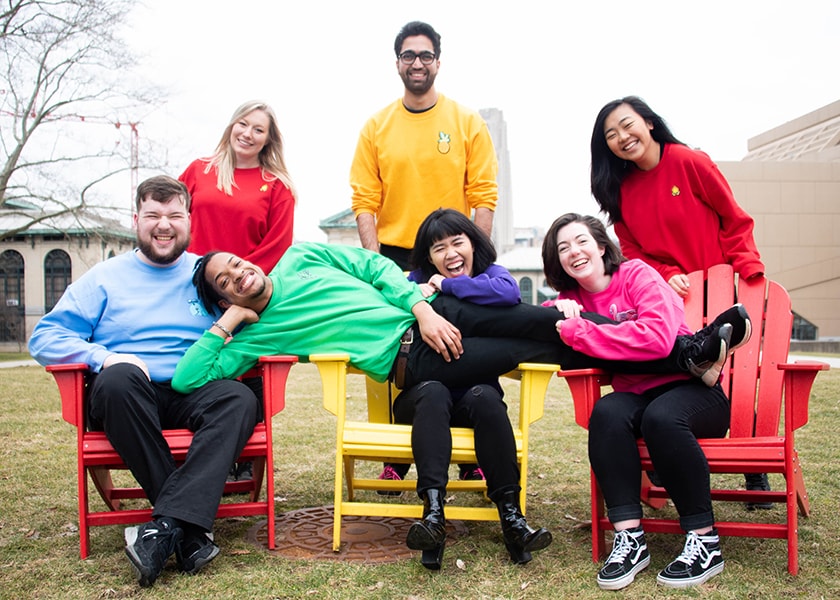
Building Relationships During the First-Year Experience
At Carnegie Mellon, we believe that investing in meaningful relationships is invaluable for new students and contributes to a truly transformative university experience. There are several key relationships that we hope students develop early in their college experience.
Peers – First-year students will meet other new students all over campus during Orientation, in their residence halls, in their classes and through student activities. Some new college students might be out of practice of meeting new people or may not feel totally comfortable initiating conversation with strangers. We encourage all new students to push outside of their comfort zones, introduce themselves to new people on campus and take the first step to building connections. It usually takes several months or more for students to fully find their niche on campus, but building a network of friends and acquaintances is a great first step to feeling comfortable in their new home.
Resident Assistant – Every first-year student will have a Resident Assistant (RA) assigned to his/her floor in the residence halls. This upperclass student serves as a resource, mentor and advisor to new students. They are there to help facilitate community in the residence halls. First-year students will spend time during Orientation getting to know their RA.
Housefellow – Housefellows are experienced professional staff members who engage with new students though their residence hall experience. Housefellows cultivate meaningful, one-on-one relationships with the students in their house community. The housefellow is your student’s primary point of contact and advocate for any extracurricular needs on campus. If you have a concern or worry about your student’s experience on campus, feel free to get in touch directly with their housefellow.
Advisor – The college advisor is often compared to a high school guidance counselor in the academic and personal support that they offer to students. Academic advisors are professional staff and faculty members who are a primary source of support for first-year students. Advisors can help students determine where their strengths and interests align, develop suitable educational plans, evaluate progress towards established goals and develop problem-solving and decision-making skills. If your student has an academic-related question and doesn’t know where to get started, encourage them to consult their academic advisor.
Faculty — If your student has a question about class material or is struggling in a course, the first step is to talk to the course professor. Faculty members offer office hours to meet with students. During that time, the professor can answer questions and refer to strategies for additional support. At the beginning of each class, students receive a course syllabus that outlines the class objectives, resources and deadlines. Encourage your student to refer to the syllabus for details about their professor’s office hours and the best way to schedule a meeting.
